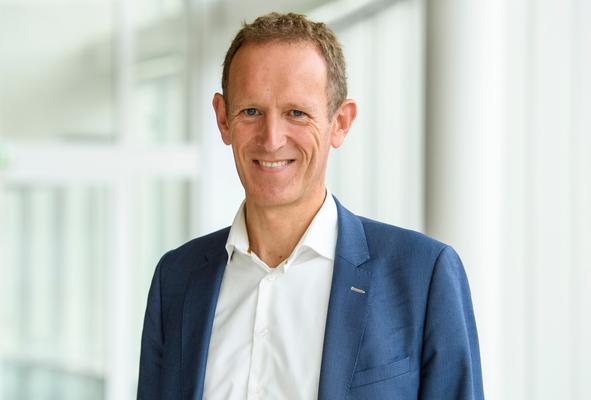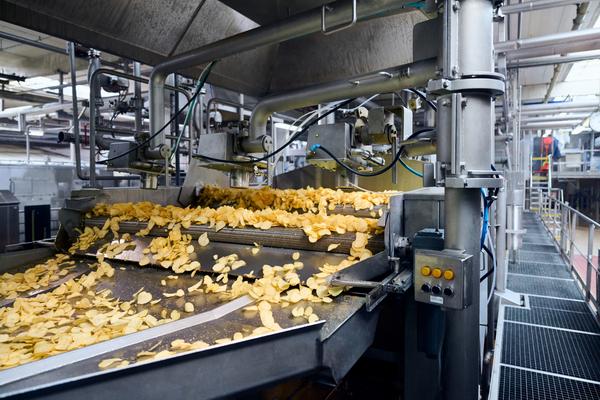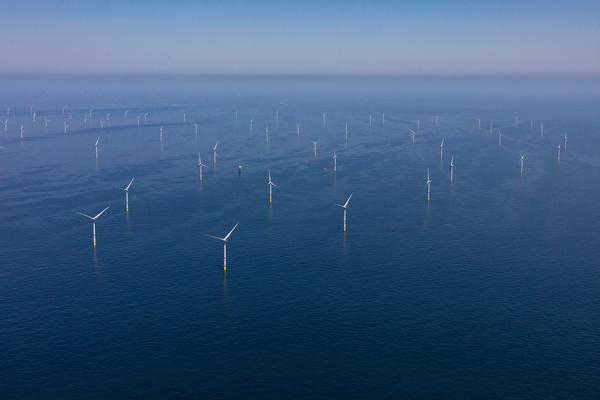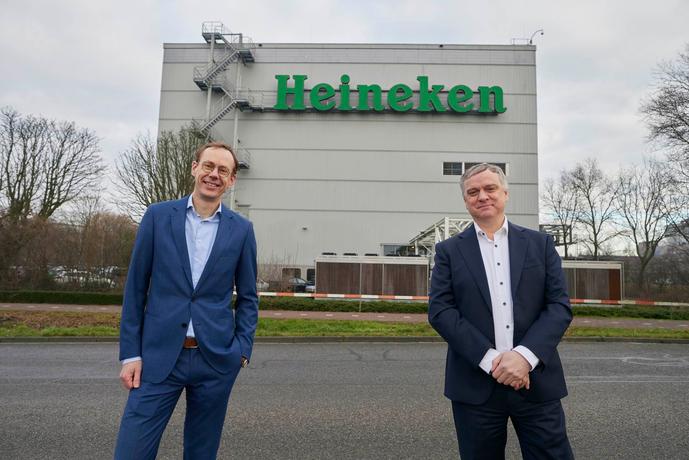
Heineken's radical electrification of a complex energy ecosystem
Heineken wants all its breweries, which are located all over the world, to be CO₂-neutral by 2030, and its entire chain by 2040. Energy partner Eneco is helping the company achieve that ambition by introducing radical electrification, starting with Europe’s largest brewery.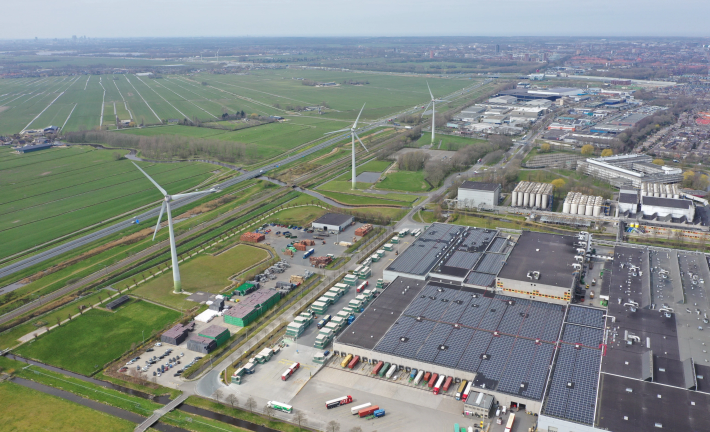
Heineken has quietly been working on making its energy consumption greener for years and joined forces with Eneco in 2018. Previous projects include the installation of 26,000 solar panels and wind turbines at Heineken’s Dutch breweries in ‘s Hertogenbosch and Zoeterwoude.
Great work so far, but not enough to satisfy Heineken: the brewer wants to be fully sustainable. And that means, among other things, no more natural gas, which the brewery process currently still uses in large quantities. In the past four years, the brewery in ‘s Hertogenbosch changed to running forty per cent of its processes on biogas. Reducing the remaining sixty per cent to zero is a more complicated move, which is why they are switching to green energy and converting the breweries to electricity as far as possible.
Great work so far, but not enough to satisfy Heineken: the brewer wants to be fully sustainable. And that means, among other things, no more natural gas, which the brewery process currently still uses in large quantities. In the past four years, the brewery in ‘s Hertogenbosch changed to running forty per cent of its processes on biogas. Reducing the remaining sixty per cent to zero is a more complicated move, which is why they are switching to green energy and converting the breweries to electricity as far as possible.
Step 1: EU’s largest brewery
The challenge of switching to full electrification is the greatest in the village of Zoeterwoude, the site of the largest brewery in the European Union. Here, working non-stop, Heineken brews almost all kinds of beer and flavour variants the company produces. Of all its sites, it is precisely this gigantic brewery that Heineken wants to ‘radically electrify’: eventually converting all the processes that run on gas to a sustainable power supply, or to biogas from their own waste-water purification unit. An exciting project, Maarten Koudenburg at Heineken Netherlands Supply admits. ‘This is such a large site, with so many processes running simultaneously, and they’re all scheduled to be “just in time”. We can’t permit any interruptions in any of those processes, and no disruptions in our energy supply either. But if we can do it here, we can do it anywhere.’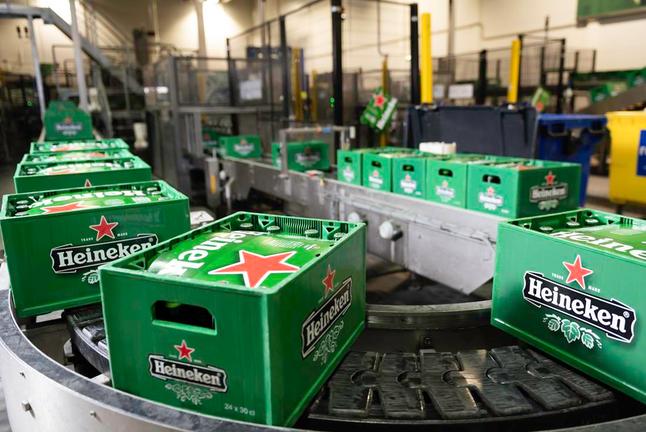
Eneco to the rescue
So, how do you stop such a huge brewery running on fossil fuels and switch to biogas and electricity within two years? Heineken and Eneco put their heads together to come up with a solution. Koudenburg continues: ‘Sometimes our processes need cooling and sometimes, in other places, they need heating. Our whole energy system is like an interlocking jigsaw. We start by generating as much green energy as we can on our own premises, while – crucially – keeping our consumption as low as possible. We manage that by putting extra insulation around the hot and cold pipes, for instance, and reusing residual heat.’ The next two steps are to build an installation in Zoeterwoude featuring two 4-megawatt heat pumps and a 12-megawatt e-boiler, all running on green energy. The e-boiler, which Heineken and Eneco want to commission in 2024, is to be installed as part of a pilot to replace the current boilers, which are still heated by gas and biogas.E-boilers: quick to heat with high yields
E-boilers in particular will have a large part in the electrification process. These units consist of extremely well-insulated water tanks where thousands of litres of water are heated, quickly and efficiently, by electricity. Using green power, Heineken can heat water rapidly or produce steam for pasteurising beer, sterilising packaging, etc. E-boilers have many advantages compared to traditional gas boilers, as Eneco’s Chief Operations Officer (COO) Frans van de Noort explains: ‘E-boilers work more efficiently than gas boilers, because they lose hardly any heat and have much higher yields. Besides, e-boilers are quicker to heat, which is important for the supply security in Heineken’s processes. But what if the wind turbines and solar panels generate more than is needed at the time? In that case, you can store that energy as water.’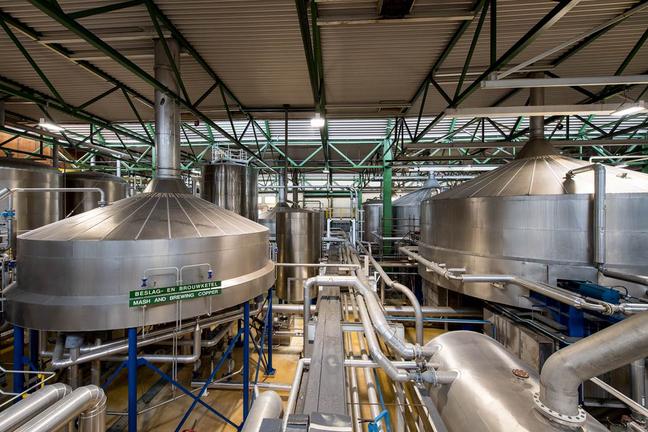
More CO₂-neutral sites
From this month onwards, Heineken and Eneco will be working on the next major move: Heineken is converting the large majority of its plants and sites in the Netherlands to run on green energy for one hundred per cent. Eneco will supply that green energy from Fryslân Wind Farm and Barrepolder Wind Farm, which means that eighty per cent of the energy used will be green.Van de Noort is clear on the matter: ''This example demonstrates that it is entirely possible to electrify complex processes too – and relatively quickly!'
